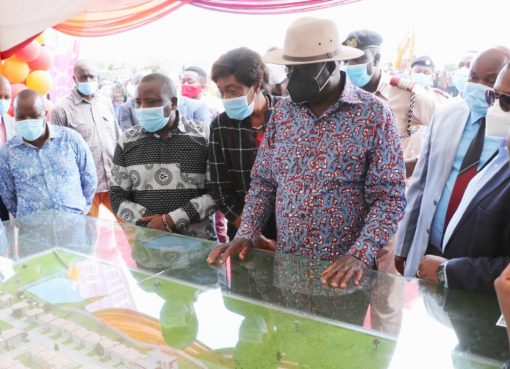Women in West Pokot County have a reason to smile after undergoing training on how to establish kitchen gardens for food security and combat the adverse effects of climate change.
The women who hail from Murpus village received the training sponsored by Perur Rays of Hope organization and its development partners in response to the ever-changing climatic conditions and erratic rainfall patterns which pose a threat to food security.
They were trained on the methods of growing vegetables in a kitchen garden within a small area using minimal water with maximum production of vegetables.
Caroline Menach, Principal of St. Elizabeth Girls’ Secondary School and Director of Perur Ray of Hope Organization explained that the women are known for their unwavering commitment to their work, which is why the Perur Ray of Hope Organization in collaboration with other development partners joined forces to build their capacity to combat the effects of climate change.
She said the organization primarily focuses on assisting women since the community heavily relies on women because they play a vital role in providing food and taking care of the children besides ensuring that the children get a good education.
Ms. Menach said Murpus village is an area with scarce water resources and added women needed to be trained in using minimal water to generate enough food for their families.
She revealed that a single conical kitchen garden can accommodate 100 vegetable seedlings, and with two gardens, a woman can adequately feed her family with vegetables such as kales, spinach, cabbage, and carrots, ensuring a nutritious diet for the children.
“Through such training, women will not only be able to feed their children but also sell any surplus vegetables, enabling them to send their children to school,” she noted.
Menach said they are actively involved in environmental conservation, particularly in establishing tree nurseries and selling tree seedlings which generate income to support children’s education.
She said the main objective of the Perur Ray of Hope Organization and its development partners is to prioritize child welfare and to uplift the economy in remote areas for the benefit of children.
Ms Menach expressed gratitude to all the partners who have contributed to the training of the women.
Mary Cherotich, a beneficiary of the program said she was grateful to the organization for the training which has enabled her to acquire skills that she can utilize to maximise the use of a small plot of land to cultivate varied crops with minimal water usage due to low rainfall in the region.
Cherotich also divulged that they have also been trained on how to hatch eggs and they currently have 1000 eggs in an incubator, which they are eagerly waiting to hatch.
She stressed that through women-focused initiatives, with the support of Ms. Menach, they have been able to provide food for their families and educate their children.
Ms. Cherotich firmly believes that empowering women to access food and income-generating projects will alleviate their economic situation.
“With Madam Menach’s guidance, we have been trained in various income-generating activities that have significantly enhanced our living standards, and we wish to be trained more on sustainability and knowledge about savings,” she said.
She further noted that if provided with adequate water for domestic and agricultural purposes, they can effectively utilize their land to generate income for themselves and their families.
Mr. Zakayo Kasikar, an elder in the community, was excited about the new agricultural technology, remarking that he had never seen such gardens in the region.
“They have erected something like a staircase and planted vegetables, something which I have never seen in this area,” he said.
He reiterated that there have been multiple occurrences of women and children in the region falling from Tuyunwo trees while collecting Sokoria leaves and wild fruits for food during drought and lauded the kitchen garden initiative, saying it could mark an end to such incidents of tragedies resulting from people falling from trees.
Elder Kasikar stated that when you assist a woman, it is equivalent to assisting the entire community.
He further acknowledged that when women are supported, men also benefit from the assistance.
Additionally, he noted that women tend to take what they receive home unlike men who are unlikely to do so in many cases.
By Richard Muhambe and Anthony Melly



